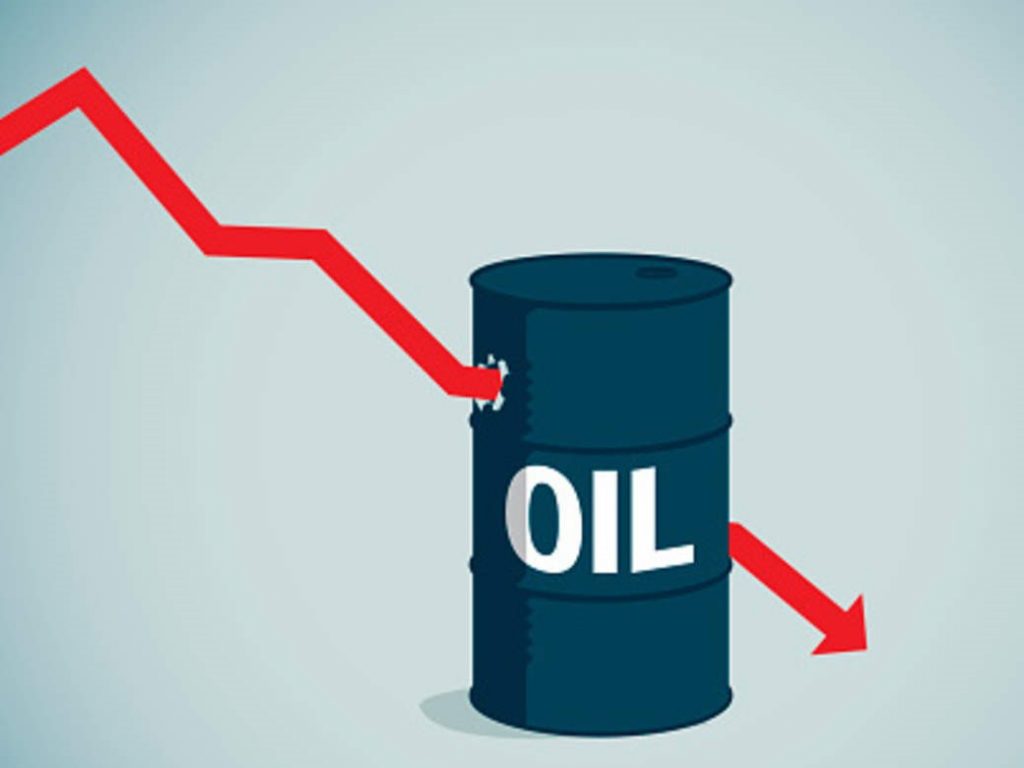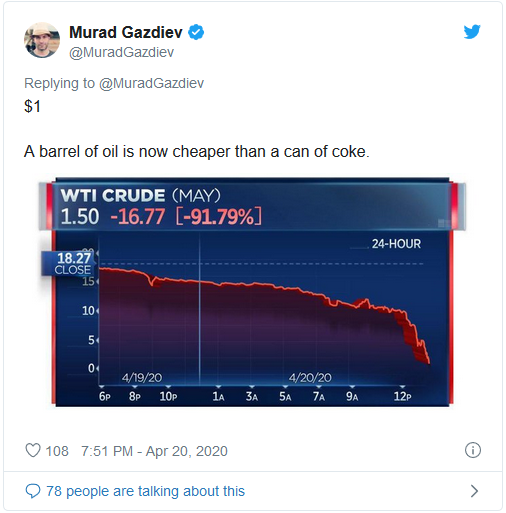Source: RT.com
The US West Texas Intermediate (WTI) crude futures were in free fall on Monday, dropping below $5 a barrel and headed for the $1 mark as May delivery contracts became worthless compared to June ones.

Between space running out at storage facilities, the supply glut due to an OPEC price war, and the demand shock due to the Covid-19 pandemic, “what you have is a unique opportunity for futures traders to ‘sell-short’ oil contracts with virtual impunity because at the moment the cost of buying and storing oil is actually negative,” Keiser told RT.
One of the reasons for the futures crash is that brokers have been dumping the May contracts to buy June ones, in a situation known as “contango” – where the future price of a commodity is higher than the spot price.

Keiser notes that this is structurally similar to the 1987 stock market meltdown, when “an already overextended stock market was driven to extreme highs by leveraged futures traders who believed their positions were fully hedged” until the automated systems handling futures trading experienced a fatal system error.
The distortion in oil price will no doubt be sorted out shortly, as May contracts roll into June ones and the underlying structural issues are resolved, Keiser said.
That still leaves oil prices “at the mercy of the virus” as other market analysts have noted. One major takeaway from this situation is that the US shale oil industry has been exposed as essentially unprofitable.
Shale “had zero chance of ever being profitable because the industry, as structured, is cash flow negative to begin with, with no way of ever becoming cash flow positive,” Keiser told RT. “The entire industry exists purely as a means to create profitable-for-Wall-Street junk bonds.”
The crunch created by demand collapse and storage capacity was made worse by a surge in production initiated by Saudi Arabia last month, ostensibly to bring Russia to heel but in effect devastating the US shale producers.
The Organization of the Petroleum Exporting Countries, Russia and other oil producers agreed last week to slash global output by nearly 10 million barrels a day, starting in May. Keiser said there will likely be further cuts, due to the ongoing lack of demand
I expect we’ll hear the 10 million barrel per day cut will be increased to 20, 30 and beyond until equilibrium is reached.
Keiser pointed out that Saudi Arabia recently sold part of their state oil company to the public in a bid to transition its economy away from oil, something he says other countries should take note of.
“I think the world is experiencing a paradigm shift away from oil so the historic highs we’ve seen in price might never come back,” Keiser told RT.